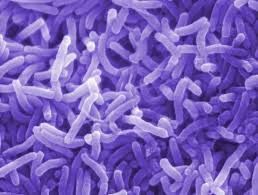In response to a devastating cholera outbreak that the World Health Organization has warned, putting hundreds of thousands of people across the country in danger, the United Nations and authorities in Haiti have requested international assistance.
The UN Office for the Coordination of Humanitarian Affairs (UN-OCHA) made a request for $145.6 million this week in a statement in an effort to stop the outbreak in Haiti, which started last month, and give its citizens much-needed aid.
According to reports, more than 7,200 people have been hospitalized with cholera in Haiti and at least 155 have died as of Saturday, Nov. 12. But the real figures are believed to be higher due to under-reporting.
Increased gang violence and instability, which soared in the wake of President Jovenel Moise's murder in Port-au-Prince last year, have made it more difficult for Haiti to combat the cholera outbreak.
Experts warned that Haiti was facing a "time bomb for cholera" after a gang blockade on a petroleum terminal in the capital for many weeks earlier this year crippling the country's healthcare system and causing water and electricity shortages.
While the Haitian authorities regained control of the blockaded Varreux fuel terminal this month, allowing petrol stations to reopen, a spokesman for Haiti’s health ministry warned that it could lead to more cholera cases.
The government is having trouble locating life-saving medicines, such as IV fluids, according to Dr. Jeanty Fils, as the debate over whether to ask for cholera vaccines continues.
After a 2010 outbreak associated with United Nations peacekeepers resulted in about 10,000 deaths and more than 820,000 infections, Haiti has not reported a cholera case for more than three years.
That outbreak was tied to a sewage leak from a UN peacekeeping base, spurring condemnation and sowing public distrust in the international body across Haiti.
The Pan American Health Organization, the WHO's Americas branch, announced that it is assisting Haiti's government in creating a request for vaccines as well as in organizing and carrying out vaccination efforts. However, it's unclear if and when that might occur.
Meanwhile, crippling poverty and a lack of access to sanitation and clean water have left thousands of Haitians vulnerable. The WHO has warned that as many as 500,000 people are at risk of contracting cholera.

© 2025 Latin Times. All rights reserved. Do not reproduce without permission.



